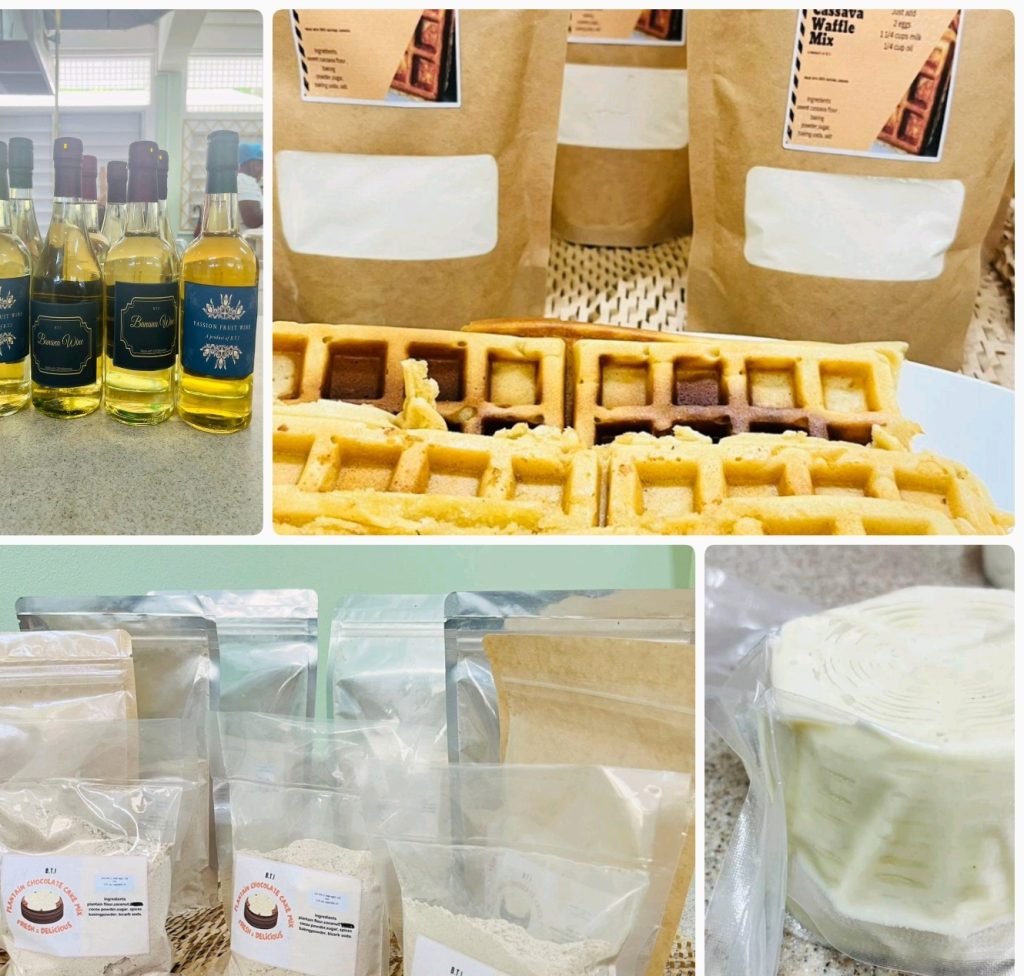Barrouallie, St. Vincent – The Barrouallie Technical Institute has successfully wrapped up a 13-week NVQ Level 2 Agroprocessing and Food Safety training program, aimed at bolstering local agroprocessing skills and promoting food security in the region. The program, led by Michker N. Edwards, a lecturer at the SVGCC Division of Technical and Vocational Education, attracted participants from diverse backgrounds, eager to advance their expertise in the burgeoning agroprocessing field.
Conducted twice weekly, the comprehensive course covered 10 CVQ Level 2 standards and included nine modules ranging from the fundamentals of agroprocessing and food safety to more advanced topics like Hazard Analysis Critical Control Point (HACCP) and food microbiology. The training was designed to blend theoretical knowledge with practical experience, ensuring participants could immediately apply their new skills.
A standout feature of the program was the utilization of sweet cassava, recently donated by the Ministry of Agriculture. Participants transformed this local produce into a variety of products, including cassava pone, granola, chips, bam bam, starch, buns, sweetened farine, and waffle mix. Additionally, they created composite flours from plantain and sweet potato, producing dry mixes such as cassava-plantain flour waffle mix and plantain flour chocolate mix.
Practical sessions extended to producing wine, cheese, sorrel liqueur, and an array of pepper sauces featuring unique flavors like passionfruit, pineapple, and mango. The course also included crafting chocolate bonbons with tropical fillings and preparing convenient frozen mixes such as ducuna, sweet potato pudding, and cassava pone, catering to the needs of modern families.
This initiative is also a boost for gastronomic tourism, highlighting local produce and culinary traditions to both residents and tourists. The program aimed to elevate the local food scene and attract food enthusiasts from around the globe.
Participants were trained in packaging and labeling, underscoring the importance of proper branding and compliance with legal standards. The course concluded with a mini-exhibition where participants showcased their creations, received feedback through sensory evaluations, and celebrated their accomplishments.
This training program is part of a broader effort to enhance local food processing capabilities, promote food safety, and add value to agricultural products in St. Vincent and the Grenadines. The successful completion of this course marks a significant step towards achieving greater food security and economic development in the region.

